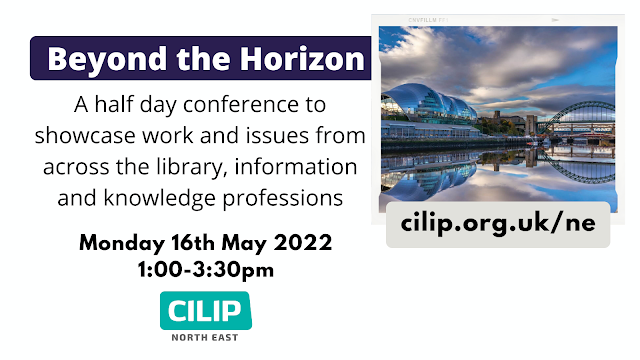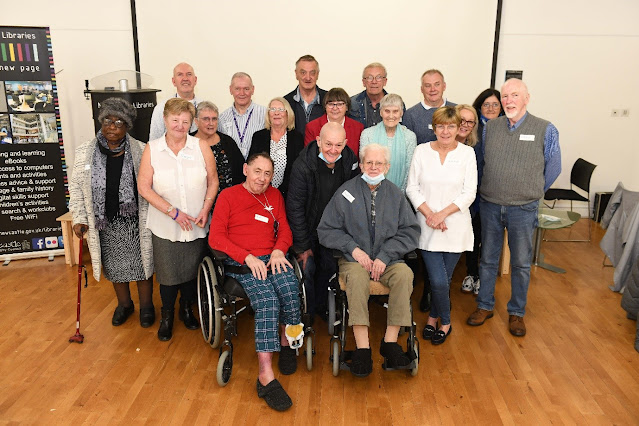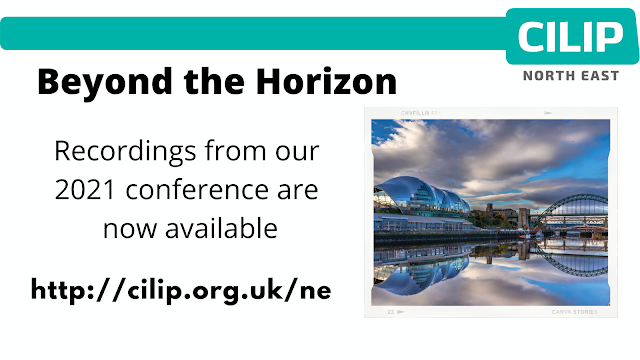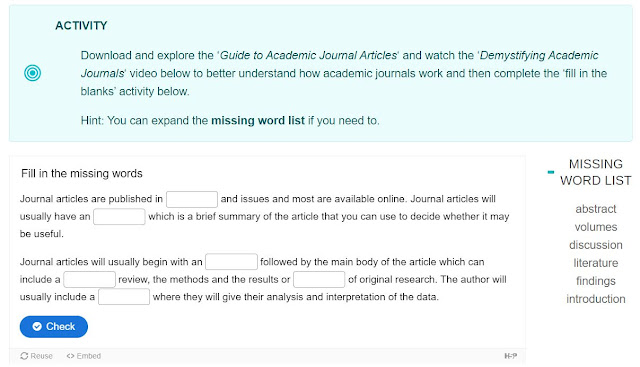The
project
This term I
have been on sabbatical and one of the things I have been working on is
evaluating a digital skills project for older people delivered during the
Covid-19 pandemic by Your Homes Newcastle in partnership with Newcastle City
Libraries. Digital skills training based
in Newcastle City Libraries has run successfully for several years, however the
Covid-19 pandemic has challenged how this training can be delivered safely to
vulnerable and older people.
This project
ran from January to August 2021, and its aim was to help equip older people
living in sheltered accommodation with the necessary digital skills to cope
with an increasingly digital world, and to provide them with a specially configured
tablet. There were two phases to the
pilot which used the online teaching resources, Learn My Way and Online Basics
as a foundation for delivery: Phase one utilised 16 hours
of telephone training at the height of the lockdown, whereas phase two utilised
12 hours of face-to-face small group sessions in sheltered accommodation as
lockdown eased. Basic tablet use
training was embedded into the delivery so that older people were able to
identify and navigate, the home screen, Gmail app, file management tools, and
Google Chrome. Library accounts were set up for each training participant and
they were shown how to access and use online library apps, BorrowBox and Libby
to enable them to download free Ebooks, audio books and magazines.
The evaluative research carried out adopted a
qualitative approach using telephone interviews to evaluate how older people
felt following their training, particularly in terms of their technological
confidence and feelings of social inclusion and well-being. NVIVO software was used to draw out the key
themes from the interviews and explore the difference this training made to
their lives.
The participants
Participants were all living in sheltered accommodation
and aged between 53 and 91 years old, with a third having a disability that
affected their ability to fully participate with society, exacerbated further
by the pandemic and social distancing.
Being predominantly from the Baby Boomer Generation (1946-1954) with a few from the
Silent Generation (born 1928 to 1945) meant that
participants had not learnt digital skills as part of their education, and very
few had been exposed to digital during their working lives which tended to be linked
to manual trades, sales and retail, domestic and caring roles. They generally did not possess the knowledge
and skills required for accessing the internet, and lacked confidence in using technology,
worsened by age related barriers linked to cognition, physical, financial and
social aspects.
They very much felt as though they were a left-behind
generation isolated from wider society, particularly during the pandemic,
yet they were keen to learn new skills helping them to adjust to a new way of
living.
Motivators for taking part
The older people interviewed identified several
motivators for undertaking the digital skills training; partly this was to do
with updating themselves so they were better able to cope with a digital world,
but also it was about improving their technological confidence as many of them
were genuinely frightened of technology, and what would happen if things went
wrong, or concerns related to digital safety and security arose.
They were motivated by the chance to better
communicate with the outside world and gain greater independence with many
having previously relied on family to help with tasks such as online shopping,
and banking. The way in which the
training was delivered was also an important motivator for participants as it was
delivered in a safe and accessible manner (by telephone or as a small group in
sheltered accommodation communal lounges), utilising a step-by-step approach from
supportive and non-judgmental trainers, and resulting in the ownership of a
tablet as a condition of the training.
For many older people digital illiteracy is a
source of embarrassment in the same way that illiteracy may have once been
perceived, and the social stigma associated with this can result in them not
engaging with digital literacy initiatives.
Participant comments to do with motivation
included the following:
“I was just scared to be honest with you, to use the
computers and that, cos you hear that much about them, don’t you, about people
getting your information and stuff like that.”
“I was really nervous to start with because I knew
nothing at all about it. But everything went well. I felt comfortable, and all
my fears went away after that first lesson. If I went wrong, it was alright.”
“My daughter does everything for me online when I need to
pay the bills and things like that. So,
anything I need, she’s always done it for me.
I just think … I need to stop being frightened of it, and try to get in
the know, and try to get up to date with things”
Figure 1: Participants from a mixture
of digital literacy schemes across Newcastle gather alongside their instructors
to receive their awards for completion of their training.
Benefits of taking part
“It was like learning to drive, and it opened a new world
for us, I could just go out. Learning
that, has taught me, that everything I need to know, I can go on there and it’s
there ready, marvellous.”
The benefits of receiving the digital
literacy training were immense for participants; despite training covering
basic knowledge and skills, it helped to boost confidence and sparked a desire
for further learning amongst participants.
Email was something that many participants didn’t know how to do, and
yet it is an essential communication tool for engaging with business and
service providers on a regular basis.
Searching for information and understanding how cookies work was another
revelation for many participants, as was using a tablet and downloading apps.
Receiving a tablet as part of the
training meant that participants could practice what they had learnt thereby helping
to reinforce the training, and also building up confidence to interact with
similar devices such as smartphones.
Incidentally many of the participants owned smartphones but didn’t
really know how to use them to their full capability using them for limited
functions such as making phone calls.
There was a strong relationship
between knowledge, skills and confidence.
All participants felt more confident using technology following the
training, and it was the little bits of knowledge that helped to make big
differences in how they felt about technology, and their own ability to
engage with a digital world. This newfound
confidence acted as a catalyst with many of the participants expressing a
desire to learn more and use their newfound skills to further enhance their
everyday lives, by joining their GP surgery online, undertaking family history
searching, or zoom calling their overseas relatives.
The training helped to connect older
people socially both through the training experience itself, and by enabling them
to utilise digital communicative technologies such as email, online shopping
and banking, and social media such as Facebook.
The Covid-19 pandemic has resulted in many of the older people
interviewed feeling more isolated due to social distancing, with some having to
shield because of health issues. Therefore,
by gaining digital skills they were able to become more socially included in
society, helping enhance their feelings of connectedness and wellbeing.
Participants really enjoyed the training
and benefitted from additional benefits of Newcastle’s online library which
they were introduced to during the training sessions. The online library helped to widen
participation to those who had not previously used the physical library, and
also encouraged others to return to the physical library as lockdown eased.
Summary
Such partnerships between social
housing providers and public libraries are vital resulting in a symbiotic
relationship for both services. The
public library service provides a means of further digital training, together
with an Aladdin’s Cave of resources and services accessible to users
both digitally and physically. The
involvement of a social housing provider helps to directly target those groups
of people that need digital support and provides an environment in which small
group and individual training can occur, facilitated by Wi-Fi access enabling
social connections.
The Housing Plus Pilot made a real difference to the
participants interviewed during this research, even more important when one
considers the Covid-19 pandemic and the move towards a more digital world
during this period. Helping to build
confidence with the use of simple, step-by-step training with a personalised
approach boosted people’s self-confidence.
Skills training alone does not necessarily facilitate digital and social
inclusion but helping to instil a confidence in older people’s ability to use
digital devices, and encouraging exploration and experimentation helps to build
feelings of social inclusion and is an important step in helping people to face
the fear and do it anyway.
“I came away really confident. The amount of things I have learnt about the
internet. I am never going to be a
master, but I am a lot more confident. I
know how to do a little bit more…. I am
not as scared as I was, I know I am not going to blow the world up; I can
cancel or delete.”
“It is just a way of life now, and without the likes of
people like **** and **** and everyone involved; helping people who have got no
idea about technology, or very little idea.
You are opening up a whole new chapter in people's lives technology wise….
giving people that little bit more knowledge.”
Biddy Casselden –
Senior Lecturer, i-school, Northumbria University
Lisa Dawson - NCC/YHN Digital Inclusion
Programme Coordinator














